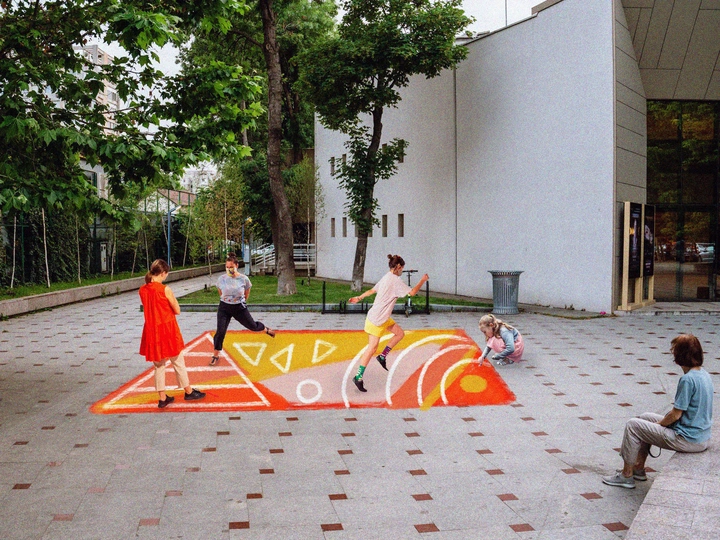The Library for Public Games

Maria Mandea
Teodora Ungureanu
We're a play design studio based in Bucharest. We work on urban game experiences that promote participation and collaboration.
We are Maria Mandea, play designer and researcher, Teodora Ungureanu, architect and urban researcher and Stefan Bunicelu, architect. We started in 2017 and worked with many fellow artists and architects and we are grateful for each collaboration.
Super Serios promotes shared decision-making on urban stakes and collaboration through an aesthetic of participation.
Through a series of projects, our initiative was developed as an iterative process. This pedagogical strategy will continue to be implemented as we expand the direction of play as a resolute tool for urban research and participatory pedagogical prototyping.
Some of our past projects are: ‘Alfabet Anina’ (2018-20), a game based on the study of the post-mining city of Anina, ‘Victoria Narrative Puzzle’ (2019), a game that explores the post-industrial city of Victoria, ‘Far to close’ (2020), a game of situations for an imaginary city, ‘System in the Room’ (2020), about the housing system (macro scale) developed from an interdisciplinary theory in cybernetics and architecture, ‘I Me Ours’(2021) a five-game series on issues of private vs. shared property, viewing the subject from a different perspective (transport, housing, food, work and city), ‘The Rousseau Game’(2022) investigating human relations and power structures in regards to ownership.
Players integrate their experiences and opinions in their game. The result is a performative exploration of the topic, a form of enactment. Most projects are large scale games where players move in space and interact using their bodies. The games are also scale models of macro systems or part of society, allowing participants to explore such structures and decisions in a fun, non-threatening context. Through the players' experiences and the structures represented in the game we aim to be both personal and political.
The Library for Public Games is a digital platform that becomes visible in the city. It is an online database of games that we have created and that are suitable to be installed in the city using minimal resources. All the games are accessible for the public to be used, installed, played and modified. We encourage public participation to reclaim and activate public space. The Library offers instructions to install the games (how to make liquid chalk or how to find a public space to re-claim). The Library is part of our larger initiative, the Play Institute (started 2023) and it is the first step in our institutional construction. Both the Library and the Play Institute are part of an artistic practice and research that we have followed for years. We emphasise the relational, social, political and aesthetic dimensions of games.
We know that public space is to important for our life to be shaped only by public administrations or private actors. Building better and healthier cities cannot be done without at least a basic understanding of architecture and urban planning by all actors involved. Through The Library for Public Games, play acts as a tool for dissemination and understanding, that can bring together professionals and citizens of all ages.
The potential of our strategy lies in the modularity and universality of the games we propose in the library. The rules, the size and the visual language can adapt to different situations and urban contexts. The existing problematics that we started with, gain further insight through each implementation and each new context.
Each of our game-installations functions as a space for collective creation and negotiation of meaning and expression, a safe space, where conflict is moderated through the game rules. We are focused on the aesthetics of public space through our prototypes. Through play, social life fills the space of the game. The aesthetic and the social experience are intertwined.